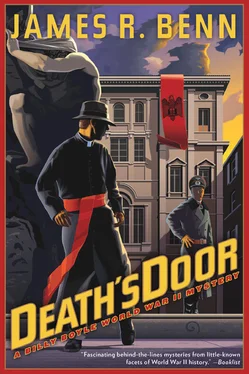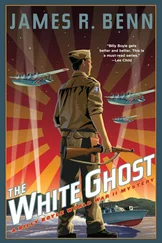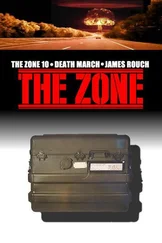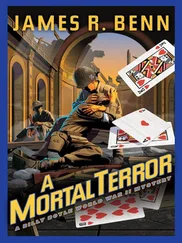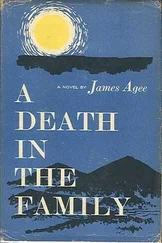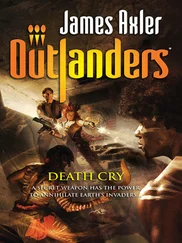James Benn - Death
Здесь есть возможность читать онлайн «James Benn - Death» весь текст электронной книги совершенно бесплатно (целиком полную версию без сокращений). В некоторых случаях можно слушать аудио, скачать через торрент в формате fb2 и присутствует краткое содержание. Жанр: Шпионский детектив, на английском языке. Описание произведения, (предисловие) а так же отзывы посетителей доступны на портале библиотеки ЛибКат.
- Название:Death
- Автор:
- Жанр:
- Год:неизвестен
- ISBN:нет данных
- Рейтинг книги:4 / 5. Голосов: 1
-
Избранное:Добавить в избранное
- Отзывы:
-
Ваша оценка:
- 80
- 1
- 2
- 3
- 4
- 5
Death: краткое содержание, описание и аннотация
Предлагаем к чтению аннотацию, описание, краткое содержание или предисловие (зависит от того, что написал сам автор книги «Death»). Если вы не нашли необходимую информацию о книге — напишите в комментариях, мы постараемся отыскать её.
Death — читать онлайн бесплатно полную книгу (весь текст) целиком
Ниже представлен текст книги, разбитый по страницам. Система сохранения места последней прочитанной страницы, позволяет с удобством читать онлайн бесплатно книгу «Death», без необходимости каждый раз заново искать на чём Вы остановились. Поставьте закладку, и сможете в любой момент перейти на страницу, на которой закончили чтение.
Интервал:
Закладка:
“Yes,” O’Flaherty said with a grin. “I know I can be too enthusiastic at times. One of my many failings. I made the bishop who was in charge look bad. But that didn’t last long. Monsignor Montini sent us back to Genoa with money and false papers for the refugees.”
“Who is Montini?”
“The Minister of Ordinary Affairs in the Vatican State Secretariat. Ordinary meaning he has jurisdiction over affairs within the Vatican City State itself. But he is a favorite of His Holiness, and often acts in areas beyond his brief.”
“Where did the false papers come from?” I asked. “The OSS?”
“Strictly speaking, they were not false,” O’Flaherty said. “Vatican passports, baptismal certificates, all printed on official paper courtesy of the Vatican print shop.”
“So Corrigan had access to ready money and identity papers,” I said. “Vatican and OSS cash for refugees, plus the papers. A tempting target.”
“Walking around with thick stacks of lira is commonplace,” O’Flaherty said. “We dispense funds all over Rome. The papers, yes, they are valuable. The right identity papers are life itself. But it would be a simple matter to rob us on any back street. Why do so in Saint Peter’s Square?”
“Food is the currency of the day in any case,” John May said as he entered the room, a thick file folder under his arm. He sat at the table in the seat D’Arcy had vacated and poured himself coffee. I didn’t think butlers normally sat in their boss’s chair. Despite the veneer of English respectability, this was a place where the rules of polite society did not apply. “It’d be worth your life to carry bread in some Roman neighborhoods.”
“What do you think was worth Corrigan’s life?” I asked.
“I wish I knew,” May said. “But I have some information for you. This is the Gendarmerie file on Corrigan’s investigation. I have to return it within the hour, so look quickly. Do you read Italian?”
“I do,” Kaz said. He took the folder and handed me the photographs. They showed Corrigan’s body from several angles. There were knife wounds in his torso and slashes on his arms. It looked like it had been a sudden, ferocious attack, but an unskilled one. The murderer had stabbed Corrigan repeatedly until a thrust to the heart finished him.
“The killer is strong,” I said. “And determined, but not experienced.”
“What makes you say that?” O’Flaherty asked, looking at the pictures of his friend and shaking his head sadly.
“Multiple wounds,” I said. “He probably had never stabbed a man before, and struggled to find the right spot. Corrigan fought back, but the first thrust had already weakened him. It takes strength to keep stabbing a man. Killing a guy with a knife is hard work if you don’t know what you’re doing. Harder than you’d think.” I studied the pictures. There was a large, dark pool at the base of the steps. Not surprising, since the heart, or the major arteries leading to it, can pump out a lot of blood before the body gives up the ghost.
“Yes,” Kaz said, “the report states that there were numerous wounds, some superficial, others not very deep. The killer finally found his mark with a single penetrating wound between the ribs into the heart.”
“Even so, it appears Edward did not die immediately,” O’Flaherty said, pointing to a trail of blood on the steps.
“Right. It looks like he dragged himself up the steps to lie against the door.”
“Perhaps he was trying to get into the basilica,” May said.
“No,” O’Flaherty said. “That is the Door of Death. It is kept locked except for funerals. Edward knew that.”
“People do odd things in their last moments,” I said.
“Odd to those of us still full of life,” O’Flaherty said. “But I’d wager a man who knows he is in his last moments would not waste them on oddities.”
I had to admit he was right. I’d seen some strange last moments, at least the ones that weren’t sudden or the stuff of nightmares. Lots of guys reached for a picture, or a letter, or a religious medal, some memento they carried to remind themselves of a life beyond the battleground. But I never saw anyone who dragged his dying body up three stone steps.
“Who found the body?” I asked.
“One of the Swiss Guard, on his rounds at first light.”
“What about the supposed killer?” I asked Kaz, as he flipped through the typewritten report.
“One Severino Rossi. He carried a French passport, marked with a red J for Juif. Jew.” He passed a photograph around. A gaunt, unshaven face gazed dully at the camera. His hair was long, curling over his forehead. His eyes were dark, his mouth gaped open in surprise, or fear. The steps of the basilica were visible in the background.
“One of the many who fled Vichy France,” O’Flaherty said. “He may well have been in the wrong place at the wrong time and been a convenient scapegoat.”
“He was found behind one of the Bernini colonnades,” Kaz said, scanning the report. “Covered in a bloodstained overcoat, asleep. Apparently that was enough evidence for Soletto.”
“What it lacks in plausibility it makes up for in convenience,” I said. “This guy Rossi knifes Corrigan, for no discernable reason, then takes a catnap a few yards away? It doesn’t add up.”
“It might,” May said. “Perhaps he was meeting Corrigan to ask for his help. If Corrigan refused, he may have lost control and attacked him in a blind fury. Then, where could he go? The Swiss Guard had all the entrances covered, and the Germans were at the border. They would certainly question anyone leaving at that hour. His best bet might have been to wait and leave with a crowd.”
“Could be,” I said. “But he still sounds like a patsy to me. Anything else about him in that file, Kaz?”
“Born the first of June, 1921. Brown hair, brown eyes. It lists his height, weight, occupation, the usual from his passport. From Toulon, and lived in Genoa after he escaped Vichy France, until the German roundups began. Then he went into hiding. Nothing else.”
“Thanks for the file, May,” I said. “Any chance we could talk to Soletto about this? And not have him turn us over to the Nazis?”
“I think so. He is a Fascist sympathizer, and we know he has informed in the past, but he values his position here, and he can see which way the war is going. He may not be very cooperative, but I don’t think it would be a risk. Monsignor?”
“No, especially if we arrange an instruction from on high,” O’Flaherty said. “Monsignor Montini, I think.”
“Monsignor Bruzzone advised against it,” I said. “He thought it would be dangerous.”
“I think it’s worth the chance. Soletto may appreciate the opportunity to ingratiate himself with the Allies,” O’Flaherty said. “I’ll contact you tomorrow once things are set up.”
“And I must return this file,” May said, “if you’re done with it.”
“Sure,” I said. “Thanks, not that there was much of value in it. What did it cost you?”
“A piece of cheese, no larger than my hand. Sad, really.”
“Well, lads, what’s next?” O’Flaherty said, after May was gone.
“Monsignor Bruzzone is going to show us Corrigan’s room in the morning. Then we’ll wait to hear from you,” I said.
“Anything else I can do for you boys?”
“Tell me, Monsignor,” I said, trying to keep my voice steady, “what is it like on the streets of Rome? Are there German patrols? Have any of your people been arrested?”
“There are Germans everywhere, but you’ve got to be careful not to show fear. For the most part, they go about their business, and if you do the same, you’ll blend into the background. But when they set up security checkpoints, that’s when it gets dangerous. They might block off a street and search everyone. Or stop a tram. Why, are you planning on seeing the sights?”
Читать дальшеИнтервал:
Закладка:
Похожие книги на «Death»
Представляем Вашему вниманию похожие книги на «Death» списком для выбора. Мы отобрали схожую по названию и смыслу литературу в надежде предоставить читателям больше вариантов отыскать новые, интересные, ещё непрочитанные произведения.
Обсуждение, отзывы о книге «Death» и просто собственные мнения читателей. Оставьте ваши комментарии, напишите, что Вы думаете о произведении, его смысле или главных героях. Укажите что конкретно понравилось, а что нет, и почему Вы так считаете.
